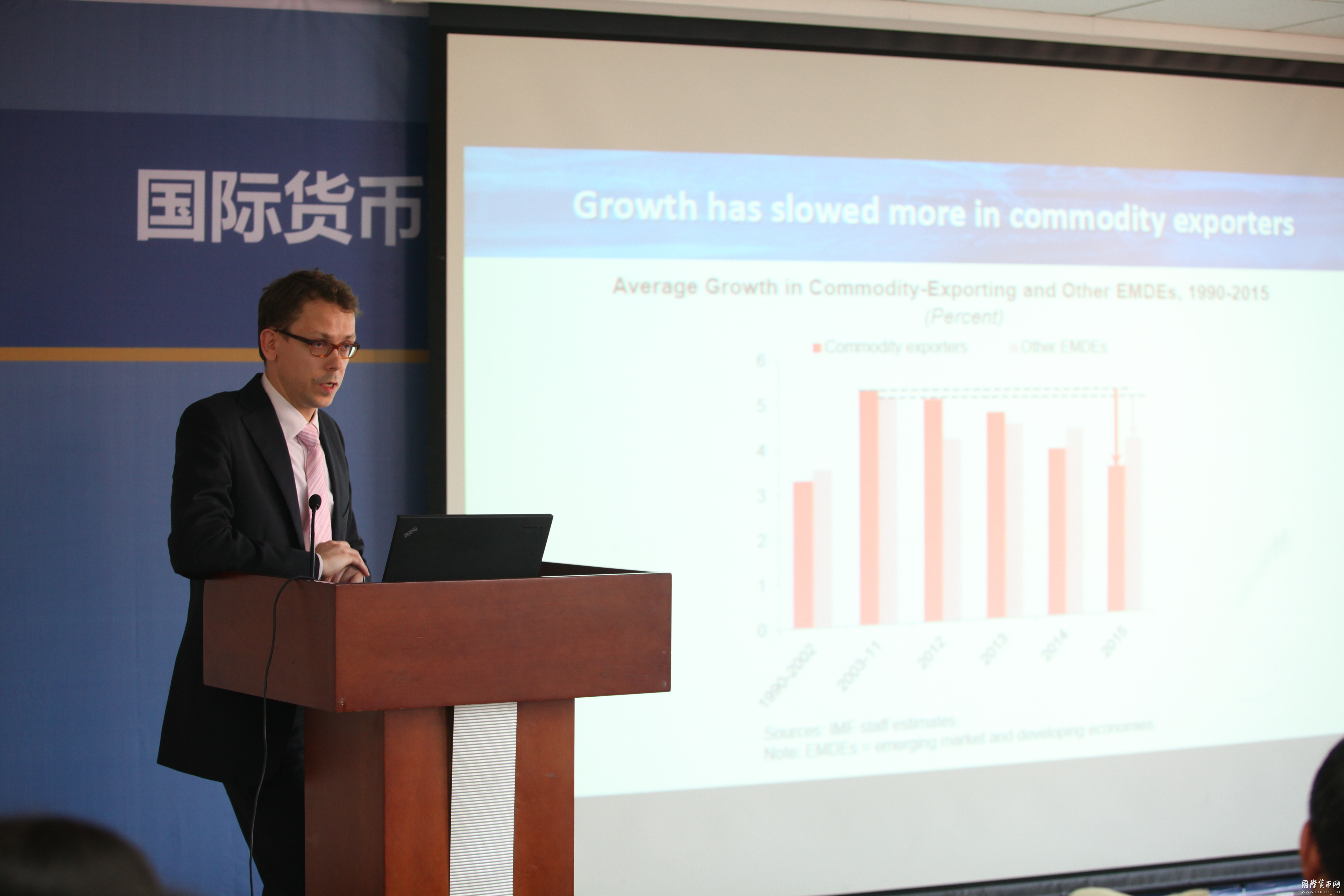Launch of IMF World Economic Outlook
2015-10-19 IMI Mr. Lian Weicheng delivered a speech titled “Exchange rated and trade: disconnected?”. He stated that with the development of economic globalization, the understanding to exchange rates and trade should be altered as well. He illustrated from several perspectives: exchange rates and trade transmission channels, the influence of major currency depreciation on emerging markets and developed economics.
Mr. Lian Weicheng delivered a speech titled “Exchange rated and trade: disconnected?”. He stated that with the development of economic globalization, the understanding to exchange rates and trade should be altered as well. He illustrated from several perspectives: exchange rates and trade transmission channels, the influence of major currency depreciation on emerging markets and developed economics.
 It was mentioned in the World Economic Outlook this year that the global economy was predicted to increase by 3.1%, 0.3% lower than that of 2014. The prospect of major countries and regions are still imbalanced.
It was mentioned in the World Economic Outlook this year that the global economy was predicted to increase by 3.1%, 0.3% lower than that of 2014. The prospect of major countries and regions are still imbalanced.
